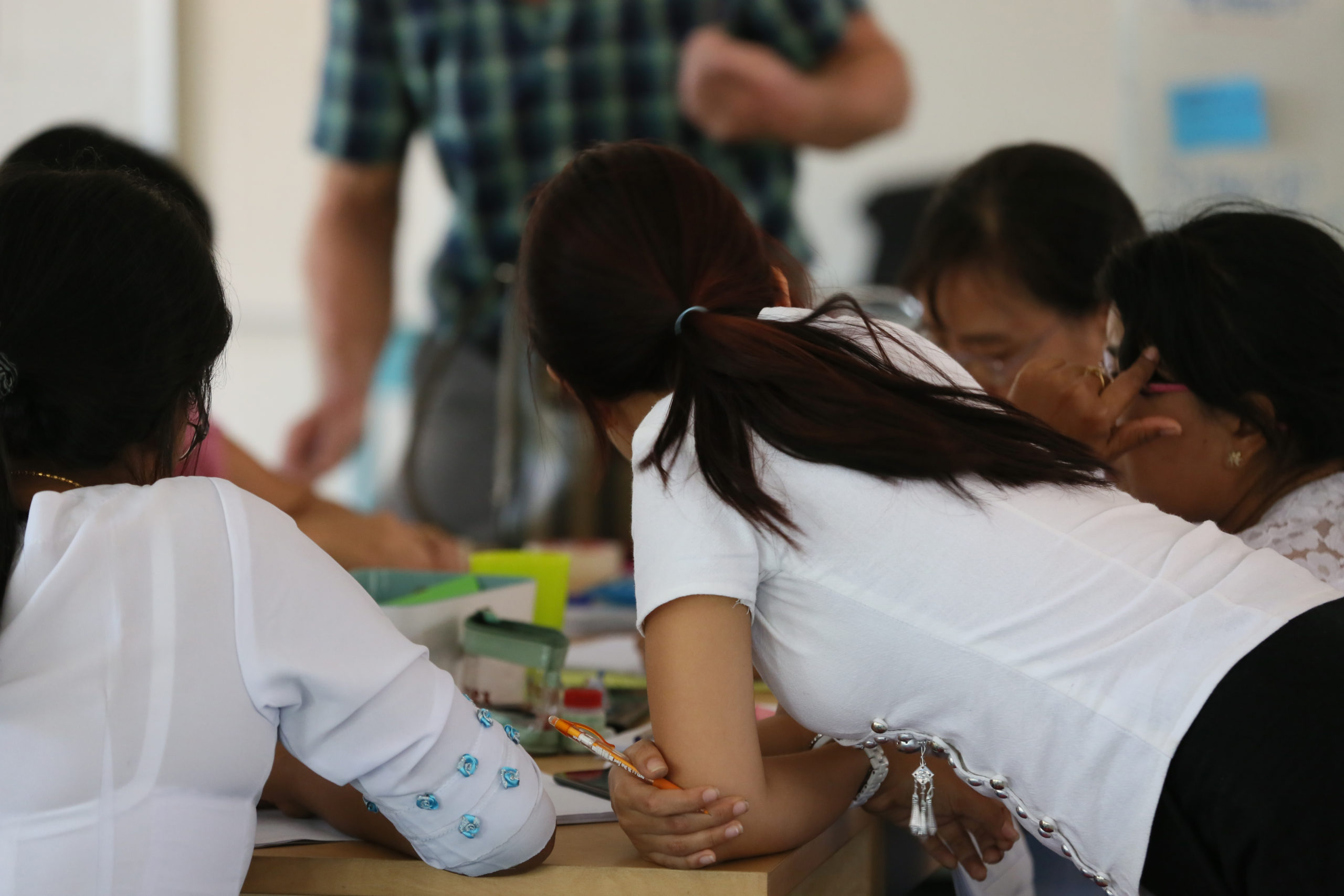Myths of Violence Against Women – In Canada and Myanmar
Story

Kim Hawkins is the Executive Director for Rise Women’s Legal Centre, a new non-profit in Vancouver that supports upper year law students from the University of British Columbia in delivering free legal services to low income women. Recently, Kim Hawkins volunteered with a similar organization in Myanmar. In this article, she shares her experience.
As a lawyer who has worked on many cases of violence against women, I know there are many myths that persist in Canada—many which were echoed in the stories that I was told while volunteering in Myanmar.
Some myths suggest that married women are passive victims who fail to resist violence; or that if a woman doesn’t end her marriage, then the violence against her must not be so bad; or that, when married, women “imply” continuing consent to sexual activity.
Other myths about violence against women suggest that women who lead “risky” lifestyles (often women who are particularly vulnerable due to poverty or racism) bear responsibility when they are on the receiving end of abuse. Oftentimes, there is a belief that women who report violence are not credible.
There are other similarities between women in Canada and Myanmar. In both countries, many Canadian women fail to report violence, or are met with negative social responses from family, friends, police, and judges when they do report. Many women cannot obtain legal aid and cannot afford to hire a lawyer. And, women living in rural areas have an even harder time accessing justice.
Women are often expected to modify their behaviours—to not walk alone at night, to not enter “risky” spaces, to not complain of family violence for fear of the ramifications—instead of curtailing the freedoms of the people who perpetrate violence against them. In short, there are examples in both countries of how limiting women’s access to public life and public space is seen as a solution to male violence. In both countries, the belief that women are already equal can obscure the systemic work that remains to be done to fully realize equality for everyone.
In Myanmar, I heard about many cases of violence against women that uphold these myths. In one incident, a woman was raped, but this was resolved by village elders who, seeking to avoid a negative image for their community, sent the woman away to work in Thailand, while her rapist walked free. In Myanmar, when a woman experiences abuse, regardless of the outcome, it is seen as shameful, and may affect other aspects of her life such as her ability to marry.
In Canada, we are fortunate that our laws are generally progressive. We experience relatively low levels of corruption, and we have access to more technology and law enforcement mechanisms that women in Myanmar. At a societal level, a lot of work has been done to speak publicly about violence against women and to start to dismantle these myths. For example, in Vancouver, we have an amazing network of women-serving organizations working together to provide different types of support to women, including interpretation services, counselling, advocacy and basic legal services—although waitlists generally remain long.
But in speaking with Aye Mon Thu, and other women lawyers in Myanmar, I was reminded how law is a very blunt tool, and often a weapon of last resort when other means of solving problems fail. Law can make broad orders, but it cannot micromanage all the subtleties of human relationships.
It’s up to us. Our cultures, both in Myanmar and Canada, must do more of the heavy lifting in ensuring women’s equality.